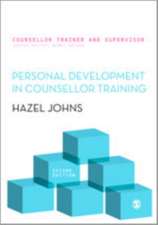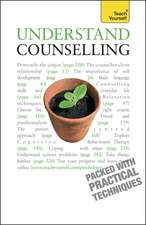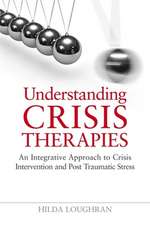Group Work with Populations At-Risk
Editat de Geoffrey Greif, Carolyn Knighten Limba Engleză Paperback – 21 sep 2016
how to work with vulnerable populations. The first chapters, new additions to this edition and written by a new co-editor, provide overarching skills and techniques that apply across group work settings and populations. These skills, along with case examples, provide a template for practice with
groups. The vulnerable populations that are addressed include returning war veterans, immigrants, the aging and their caregivers, children and adults who have been abused, and people struggling with substance abuse issues, cancer, and chronic mental illness. New chapters have been added for
survivors of sex trafficking, children in need of social skills training, people who experienced intimate partner violence, parents who are homeless, and fathers who are incarcerated. Each chapter (designed to stand alone for easy reference) describes the population and reviews the relevant
literature, identifies themes and practice principles, presents case illustrations, provides evaluation guidance, and refers readers to key references and web resources.
Preț: 517.05 lei
Preț vechi: 671.50 lei
-23% Nou
Puncte Express: 776
Preț estimativ în valută:
98.95€ • 102.92$ • 81.69£
98.95€ • 102.92$ • 81.69£
Carte disponibilă
Livrare economică 24 martie-07 aprilie
Preluare comenzi: 021 569.72.76
Specificații
ISBN-13: 9780190212124
ISBN-10: 0190212128
Pagini: 568
Dimensiuni: 158 x 233 x 32 mm
Greutate: 0.75 kg
Ediția:4
Editura: Oxford University Press
Colecția OUP USA
Locul publicării:New York, United States
ISBN-10: 0190212128
Pagini: 568
Dimensiuni: 158 x 233 x 32 mm
Greutate: 0.75 kg
Ediția:4
Editura: Oxford University Press
Colecția OUP USA
Locul publicării:New York, United States
Descriere
Group
Work
with
Populations
a
Risk,
Fourth
Edition
is
a
fundamental
resource
for
practitioners
in
health
and
mental
health
settings
and
a
comprehensive
guidebook
of
group
work
skills.
Geared
toward
students
and
professionals
gaining
a
beginning
understanding
of
groups,
this
volume
describes
how
to
work
with
vulnerable
populations.
The
first
chapters,
new
additions
to
this
edition
and
written
by
a
new
co-editor,
provide
overarching
skills
and
techniques
thatapply
across
group
work
settings
and
populations.
These
skills,
along
with
case
examples,
provide
a
template
for
practice
with
groups.
The
vulnerable
populations
that
are
addressed
include
returning
war
veterans,
immigrants,
the
aging
and
their
caregivers,
children
and
adults
who
have
been
abused,
and
peoplestruggling
with
substance
abuse
issues,
cancer,
and
chronic
mental
illness.
New
chapters
have
been
added
for
survivors
of
sex
trafficking,
children
in
need
of
social
skills
training,
people
who
experienced
intimate
partner
violence,
parents
who
are
homeless,
and
fathers
who
are
incarcerated.
Each
chapter
(designed
to
stand
alone
for
easy
reference)
describes
the
population
and
reviews
the
relevant
literature,
identifies
themes
and
practice
principles,
presents
case
illustrations,
providesevaluation
guidance,
and
refers
readers
to
key
references
and
web
resources.
Notă biografică
Geoffrey
Greif,
PhD,
MSW,
is
Professor
at
the
University
of
Maryland
School
of
Social
Work.
He
has
authored
numerous
books
and
more
than
125
journal
articles
and
book
chapters.
His
research
on
relationships
has
been
cited
in
news
outlets
throughout
the
world,
including
The
New
York
Times,
The
Wall
Street
Journal,
USA
Today,
and
The
Times
of
London.
He
has
made
personal
appearances
on
CBS
This
Morning,
BBC,
CNN,
and
NPR.Carolyn
Knight,
PhD,
MSW,
is
Professor
in
the
School
of
Social
Work,
University
of
Maryland,
Baltimore
County.
She
has
more
than
25
years
of
experience
providing
individual
and
group
treatment
to
adult
survivors
of
childhood
trauma.
She
has
extensive
experience
facilitating
groups
for
bereaved
children
and
currently
runs
a
group
in
a
shelter
for
homeless
parents.
She
has
written
and
presented
extensively
on
the
group
modality,
including
strategies
for
teaching
group
work
in
the
classroom
andthe
field
practicum.













